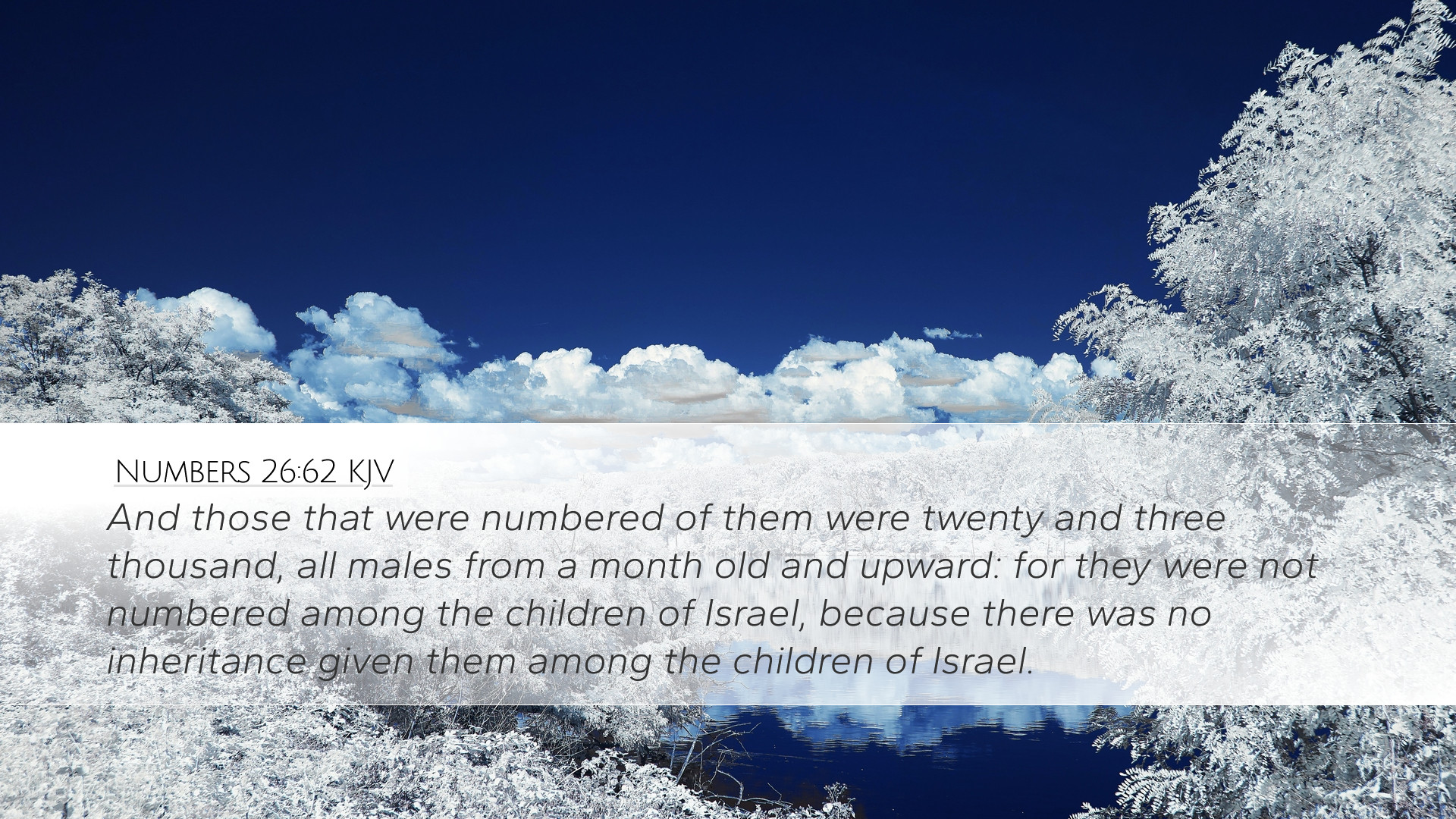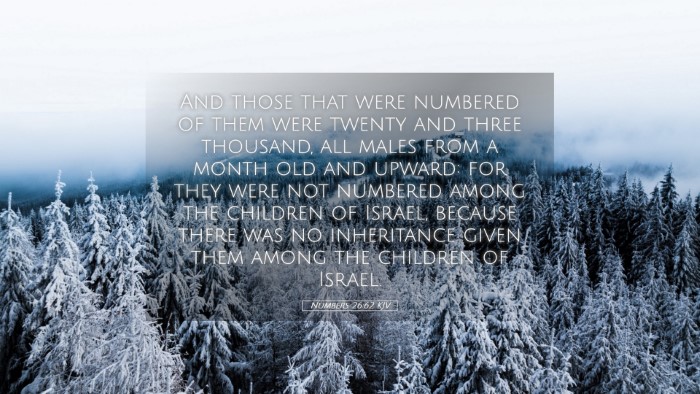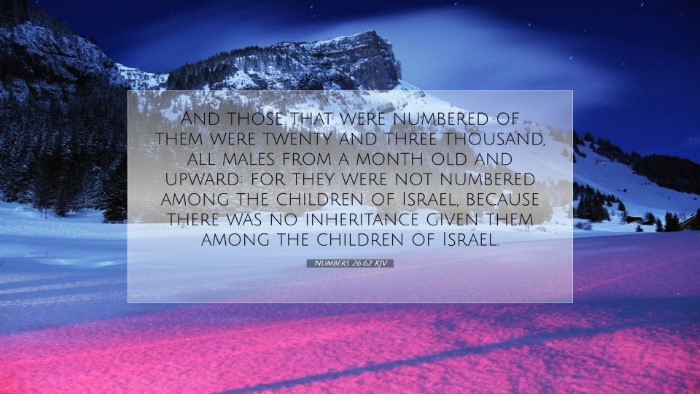Commentary on Numbers 26:62
Bible Verse: "And those that were numbered of them were twenty and three thousand, all males from a month old and upward: for they were not numbered among the children of Israel, because there was no inheritance given them among the children of Israel." (Numbers 26:62)
Introduction
This verse is pivotal in providing insights into the tribe of Levi and their unique status among the Israelite community. The mention of the Levites and the specific enumeration of their numbers reflects God’s covenantal faithfulness and the distinct role set forth for the tribe in service to Him. In examining this verse, we draw from various public domain commentaries to elucidate its meaning, implications, and applications for today's church.
The Context of Numbers 26
Numbers 26 is a continuation of the account of the census conducted in the wilderness of Sinai. It follows a previous census recorded in Numbers 1 and serves to prepare the Israelites for entering the Promised Land. This chapter emphasizes God's sovereignty and His providential care for each tribe and their allotment of land.
Significance of the Levites
According to Matthew Henry, the Levites were not counted among the twelve tribes concerning the distribution of the land of Canaan. Henry adds that their exclusion from land inheritance does not diminish their importance but rather highlights their special calling for priestly service. The narrative illustrates the concept of being set apart for divine service, emphasizing spiritual rather than territorial inheritance.
Specifics of the Census
Albert Barnes elaborates on the census of the Levites, noting that they were counted from one month old and upward, emphasizing the importance of every male in that lineage. Barnes points out that this age requirement reflects the significance of their role as servants in the Tabernacle. It indicates that every male from infancy was part of this holy service, marking their lifelong dedication to God’s work.
Theological Implications
When we consider the census of the Levites in light of their circumstances, it raises profound theological questions about identity and calling. Adam Clarke notes that the Levites were chosen by God for a distinct purpose: they were set apart to serve in the Tabernacle, and thus they received no territorial inheritance like the other tribes.
- Identity and Service: The Levites symbolize the believers’ calling to be a 'royal priesthood' (1 Peter 2:9), dedicated not to worldly pursuits but to spiritual service.
- Divine Ownership: Clarke indicates that the absence of a land inheritance teaches Israel the principle of divine ownership. Their lives were to be dedicated wholly to the Lord, and all their sustenance comes from Him.
- Community Responsibility: The Levites represented a portion of the community that was directly involved in worship and maintaining the covenant, hinting at the shared responsibility of all believers to uphold and support their church leaders today.
Applications for Today’s Church
This passage remains relevant for contemporary Christians as it illuminates the nature of service and sacrificial living in the context of a community of believers.
The Call to Serve
Church leaders, pastors, and theologians must reflect on the Levites’ commitment to service. In modern application, every believer is encouraged to pursue a life of service and dedication to God’s work, irrespective of their vocational calling. Their example fosters a culture of sacrificial living, prioritizing spiritual responsibilities over material possessions.
Unity in Diversity
Numbers 26:62 also speaks to the broader concept of unity within diversity. Just as the Levites played a unique role among the tribes, contemporary applications in ministry involve recognizing and nurturing the diverse gifts within the body of Christ (1 Corinthians 12). Each member has a role that contributes to the whole, demonstrating that different functions are integral to the health and growth of the church.
Conclusion
Numbers 26:62 encompasses deep themes of service, identity, and divine purpose. The Levites' role foreshadows the New Testament principles of service and dedication found in Christ's teachings. As church leaders reflect on this passage, it challenges them to foster a community where every member understands their unique calling and the importance of their spiritual inheritance in Christ.
In summary, while the Levites did not receive a geographical inheritance, their life's work was in service to God, which bore eternal significance. The legacy of the Levites compels today’s church to embrace their calling with similar fervor and dedication.


